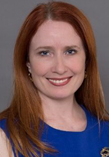© 2016 The Texas Lawbook.
By Natalie Posgate
(June 24) – Dallas Bar Association leaders decided Thursday by a unanimous vote by acclamation to give the Dallas Women Lawyers Association sister bar association status by granting the DWLA two ex officio seats on the DBA’s board of directors – but not the permanent director at-large voting seat that the DWLA requested.
The DBA board also unanimously agreed to include DWLA dues on the DBA membership application, which both organizations agree will lead to increased membership for the women lawyer’s organization. Both actions are anticipated to go into effect Jan. 1, 2017 after the entire DBA membership approves the board’s vote at the Nov. 4 annual meeting.
DBA board members – nearly half of whom are women lawyers including two who are former DWLA presidents – told the DWLA that they would reconsider the decision in the future depending on how well leaders from the DWLA “play in the sandbox” as non-voting members, according to lawyers who attended the session.
The DWLA asked the DBA to recognize it as a minority bar organization and appoint a permanent voting seat for the DWLA on the board, in line with the benefits the local Hispanic, African-American and Asian American bar organizations have enjoyed for decades.
Thursday’s three-hour meeting, which was closed to the press, follows a series of contentious months between the DWLA and DBA that heightened in May, when a DBA task force released a report recommending the board grant the DWLA two non-voting positions on the board, which could morph into a permanent voting seat down the road.
Attendees described the tone of the meeting very differently.
DWLA supporters exiting the DBA meeting said the atmosphere was contentious, that DBA board members responded to their requests using condescending language, that state and federal judges attending were not allowed to give their perspective, and female board members who asked for more time to consider the task force’s recommendations and look at more data were overruled.
Others described the meeting as an extremely positive discussion and a great day for the Dallas Bar.
“There were agreements that we’ll go forward and start figuring out more [ways] we can [work] together,” DBA President Jerry Alexander said after the meeting. “[DWLA is] a very energetic group and we’re eager to move forward with them. I’m very excited about it.”
DLWA President Angela Zambrano said she was pleased with the outcome but is hopeful that the DWLA’s full request will be granted soon.

“I am pleased that the DBA has recognized that the DWLA should be included on the DBA board,” she said. “I look forward to the day when the DBA gives the DWLA a voice on the board with a voting seat.
Kara Altenbaumer-Price, the chair of another women attorney organization in town called Attorneys Serving the Community who said she attended the meeting to “lend support as a woman lawyer leader in Dallas,” expressed dismay at the outcome.
“The fact that the seat approved for DWLA tonight is only a non-voting position to me is shocking in 2016,” Altenbaumer-Price, the senior vice president of corporate risk & governance at USI Southwest, said in an email.

“Watching the acrimony and the process today was disheartening and disappointing,” she continued. “It shouldn’t even be a debate. Anyone who does not recognize the unique challenges and inequities faced by women lawyers is choosing to be intellectually dishonest. It is the responsibility of lawyers in a legal community the size of ours – both men and women – to correct these issues and pave a way forward for others.”
Alexander said the focus of this entire discussion has been placed too heavily on the fact that the DWLA’s new board positions are non-voting, emphasizing that the focus instead should be on the numerous benefits DWLA now has access to by being part of the DBA board.
“Ex officio is a really big deal,” he said. “Ex officio board members can do anything that any other director can do except vote. It also means they will have full access to the book and records and the full ability to participate as a board member. [Ex officio] can make motions, second motions and call questions like any other director.”
Alexander, DBA Board Chairman Robert Tobey and other DBA board members said the ex officio positions the DBA appointed the DWLA are fully intended to morph into a voting seat for the DWLA down the road. They said the DWLA can petition for that transition at any point, and added that it is crucial during the transition period for the leaders of DWLA and DBA to develop a strong and positive relationship and for the two bars to find projects that are compatible to their respective missions.
Judges who attended the meeting included state judges Eric Moyé, Jim Jordan, Emily Tobolowsky, Tonya Parker and Craig Smith as well as U.S. Magistrate Judge Kimberly Priest Johnson. Dallas District Judge Martin Hoffman, who is a DBA board member, was also present.
“I’m furious,” Judge Tobolowsky said as she left the meeting.
During the time the DBA task force conducted its study, the DWLA started a petition that gained the support of more than 600 lawyers, corporate general counsel, judges, and the deans of the two law schools in Dallas.
Though leaders and supporters of the DLWA said the organization had been pursuing a voting seat for several years, the women’s organization did not submit a formal request to the DBA board until last fall. In October, then-DBA President Brad Weber appointed a four-woman, three-man committee to investigate DWLA’s request and create criteria for considering future requests by other specialty bar associations seeking voting seats on the DBA board.
Minutes from the 1999 DBA board meeting that voted to add a permanent voting position for the Dallas Asian American Bar Association indicated that the DBA task force that evaluated DAABA’s requests declined to establish criteria for such requests in the future.
The ad hoc committee for the DWLA’s requests included two former DWLA presidents as well as three current officers on the DBA board. Alexander called every member of the committee “strong advocates for women in the legal profession.”
The committee, which spent around seven months and hundreds of hours conducting its findings, concluded that appointing the DWLA the non-voting seats first was appropriate because DBA leadership is already well-represented by women and DWLA has a low membership in respect to the 5,000-plus women lawyers in Dallas.
“The objective data shows that women are well represented in the DBA’s general membership numbers and in the DBA leadership roles,” the 18-page report says. “It also shows that DWLA has extremely low membership numbers relative to the number of women attorneys in Dallas and in the DBA.”

Alexander echoed the committee’s findings.
“The past practice of the board was to appoint designated seats to under-represented groups in the bar and was a great way to diversify the Dallas Bar,” he told The Texas Lawbook earlier this week. “Women are not under-represented as voting directors on the DBA board, since 48 percent of voting members of the board are women. In recent years, that number has been as high as 56 percent.”
Alexander pointed out that the DBA’s decision with DWLA was in line with its approach with Dallas’ African-American bar and Hispanic bar associations’ requests to become part of the DBA board. The DBA granted the sister bar organizations non-voting seats first in 1985, and later, at-large voting seats in 1990.
When the DBA considered adding DAABA (the Asian American bar) to the board, it granted DAABA a voting seat because the committee that made the recommendation determined that Asian Americans in the DBA were too underrepresented at the time not to immediately appoint a DAABA voting member.
Yvette Ostolaza, a former State Bar of Texas board member and a supporter of the DBA, only had one thing to say to that: “Welcome back to the 80s, folks.
“The DBA is ignoring its most recent precedent on this issue – the admission of DAABA, and no one indicated last night that granting DAABA’s voting position caused any problems or any other explanation for the change in course,” Ostolaza said.
Ostolaza took a group of summer associates from her law firm to Thursday’s meeting, hoping “we could all be part of a historic moment.

“The summer associates did get to have an interesting experience, but it was one that would have made me run from Dallas and what brought me to this great state and city,” said Ostolaza, the managing partner of Sidley Austin’s Dallas office.
“Although the DWLA was finally given board seats – albeit non-voting ones – a historic moment will have to wait,” she added. “I hope only until the next meeting, where I sincerely hope the DWLA will move to be admitted as voting board members. I will take my children next time. They will learn a lesson either way.”
© 2016 The Texas Lawbook. Content of The Texas Lawbook is controlled and protected by specific licensing agreements with our subscribers and under federal copyright laws. Any distribution of this content without the consent of The Texas Lawbook is prohibited.
If you see any inaccuracy in any article in The Texas Lawbook, please contact us. Our goal is content that is 100% true and accurate. Thank you.
